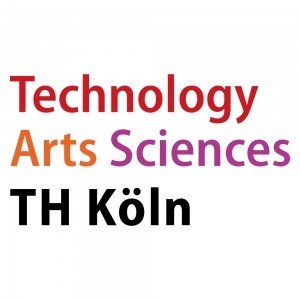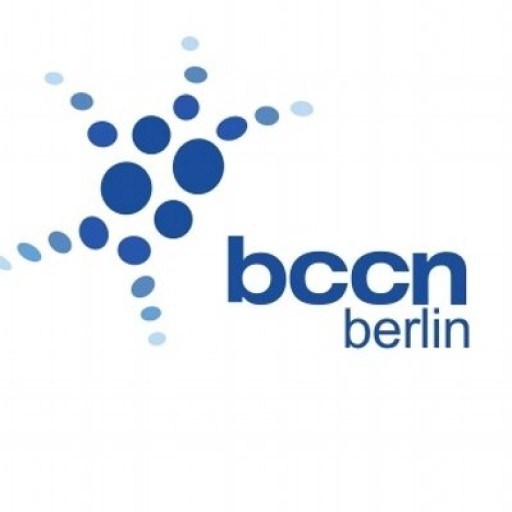Photos of university / #th_koeln
The programme's content includes:
The programme offers three areas of specialisation:
- Game design
- Storytelling
- Audiovisual design
- Animation
- Prototyping
- Programming and technology
- Project management
- Video game and media studies
The programme offers three areas of specialisation:
- Game Arts
- Game Design
- Game Informatics
Educational organisation
After a general introduction to the creative and technological process of game development and the academic study of digital games in the first and second semesters, students specialise in Game Arts, Game Design or Game Informatics in the following semesters. Throughout their studies, students of all specialisations are instructed in Media and Game Studies, and they develop games in collaborative projects. In the fourth semester, students can choose between an exchange semester at a university abroad, an internship or a self-initiated project.Study abroad unit(s)
Participants can choose to spend the fourth semester of the programme at a university abroad.Course objectives
Graduates will be qualified for various roles in game development, such as game designer, level designer, game artist, gameplay programmer or project manager. Furthermore, the broad interdisciplinary education at Cologne Game Lab might qualify for game-related positions in fields such as journalism, communication, education, and applied research.Language requirements
As courses are taught in English, applicants must have a good command of English. English language proficiency will be checked during the application procedure. A formal certificate is not required.Academic requirements
University entrance diploma ("Abitur" or "Fachabitur")Successful completion of Cologne Game Lab's application procedure
Enrolment fees
The fee of about 250 EUR per semester includes a semester ticket covering public transport in the state of North Rhine-Westphalia.Costs of living
The costs of living for your stay largely depend on your personal needs. When planning your stay, you should calculate monthly costs of approximately 700-800 EUR.Job opportunities
Taking on a part-time job while studying has lots of benefits. Students can make some extra money, gain valuable professional experience, and might take a first step up on the career ladder.Whether and how long you are allowed to work during semester breaks is determined by your immigration office. The provisions applying to your specific case will be stated in your residence permit. To find out about these provisions, we recommend you make an inquiry at the immigration office during your first visit. International students from countries that are not member states of the EU, the EEA, or Switzerland are normally permitted to work 120 full or 240 half days per year if they are in possession of a valid residence permit for Germany.
TH Köln can assist you in finding a job that suits your profile and interests. Our Career Service and our Nebenjobservice (Part-Time Job Service) offer comprehensive counselling and specific information events on all aspects related to part-time jobs.
Please be aware that the level of your German language skills will strongly affect your chances of finding a part-time job, as German is the language of communication in Germany.
Funding opportunities within the university
TH Köln as well as other institutions offer different scholarships for international students such as the Deutschlandstipendium scholarship. Recipients receive approx. 300 EUR per month.https://www.th-koeln.de/en/international_office/deutschland-stipendium-scholarship---information-for-students_9164.php
Services and support for international students
TH Köln - University of Applied Sciences - follows the National Code of Conduct on Foreign Students at German Universities established by the German Rectors' Conference (HRK).The International Office provides advice and support for international students on all aspects related to studying at TH Köln. The International Office accompanies your stay at our university with a variety of programmes and events and invites you to become a part of our international community (e.g., mentoring programmes for new first semester students, TH Köln Buddy programme KARIBU, or Language Partnership programme).
Every semester, the International Office organises a semester programme including exciting cultural events to connect German and international students as well as activities to jointly discover different aspects of Cologne (e.g., a guided tour of Cologne, trips to museums and theatres, or a semester trip to the German capital Berlin).
Accommodation
Boasting a population of slightly more than one million, Cologne is Germany's fourth-largest metropolis - a highly attractive one on top of that. The increasing influx of people can make the search for adequate accommodation quite difficult. Dozens of apartment hunters often compete for a single apartment. That is why the International Office strongly recommends that you start looking for a place to live as soon as possible.The fierce competition on the housing market has resulted in above-market rents - particularly in proximity of the city centre. We therefore encourage you to be flexible: try to look for apartments outside the centre, as you will encounter less competition and lower rents.
Student dormitories
Cologne's most convenient and economical housing option is often a student dormitory. Kölner Studierendenwerk operates 86 student dorms offering roughly 4,700 rooms. Please be aware that TH Köln does not allocate the rooms in these dorms. In order to be allocated a room, please apply online on the website of Kölner Studentenwerk by clicking on "online-application". See: http://www.kstw.de/index.php?option=com_content&view=article&id=315&Itemid=11&lang=en.
The seemingly large number of dorm rooms is misleading; as the dormitories are open to the roughly 80,000 students enrolled at all Cologne universities, they are in extremely high demand. Make sure to apply for a dorm room at Kölner Studierendenwerk as early as possible.










